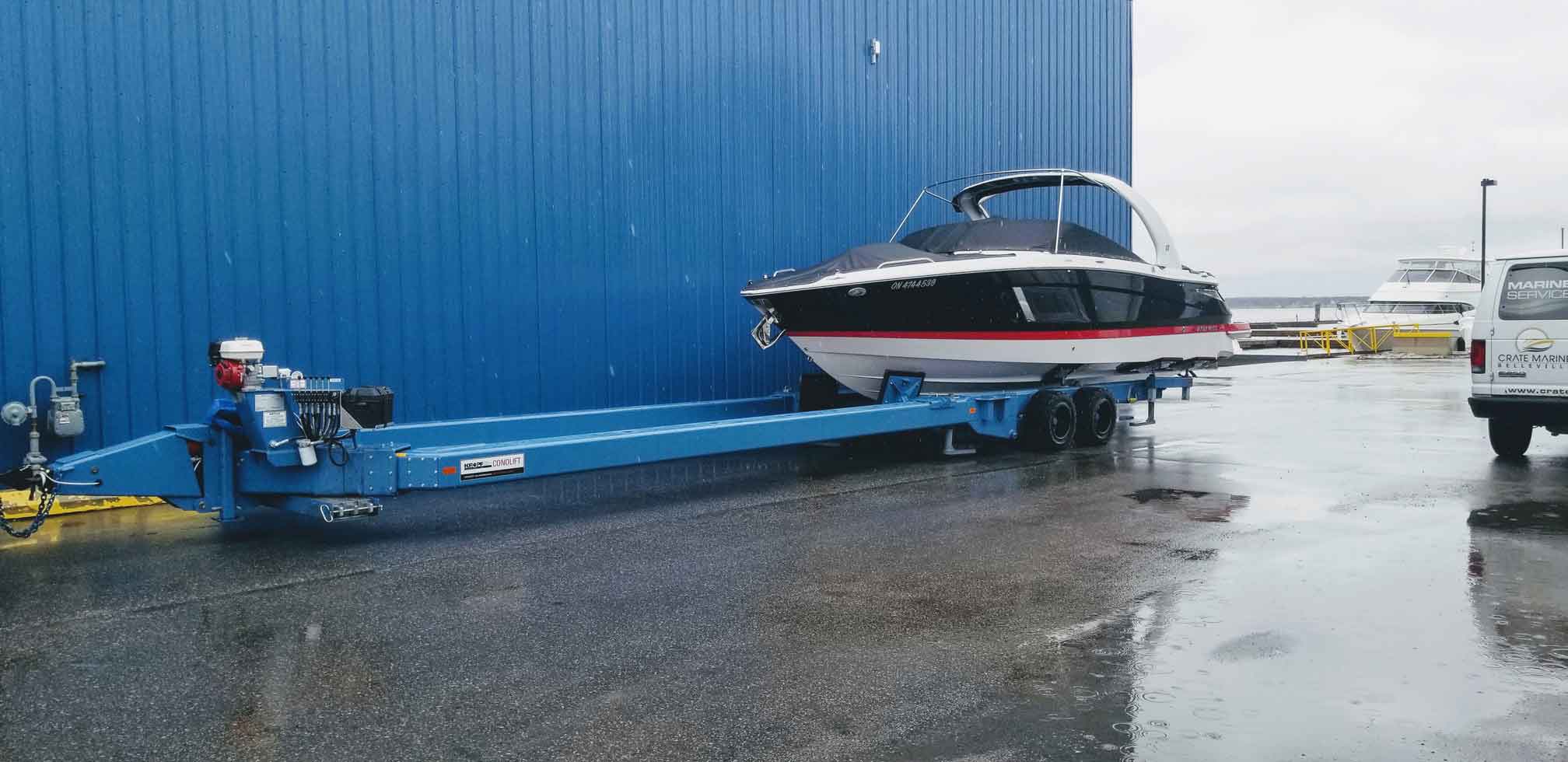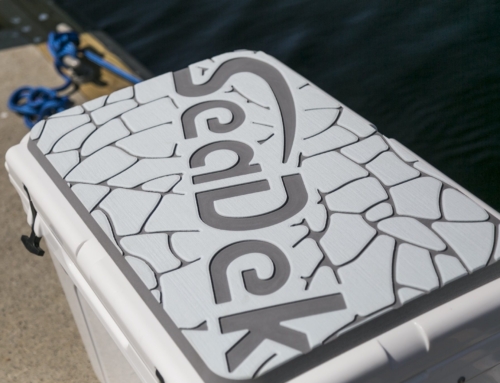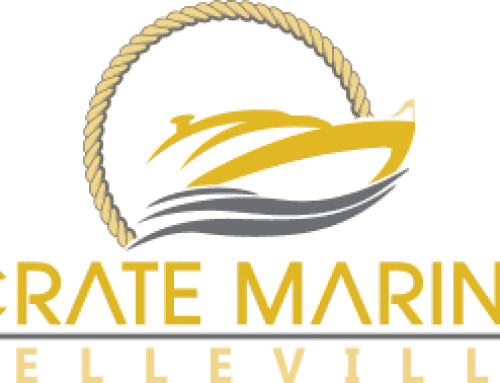Boat Trailer Maintenance A From Our Team at Crate Marine Belleville
Crate Marine Belleville has thorough experience in boat trailer maintenance. Our boating experts understand the importance of keeping your boat safe in and out of the water; your boat trailer is a part of that. We want to ensure your boat’s transportation remains safe, reliable, and ready for an adventure at our docks. From tires to brakes to hitch and couplings, our team at Crates Belleville has you covered.
We have developed a guide to give visitors boat trailer maintenance tips for hauling your vessel in and out of our marina. We’ll touch upon the dangers of rusty hardware, how to keep your boat in top shape, and when to visit a boating mechanic for further inspections.
Read ahead to learn more.
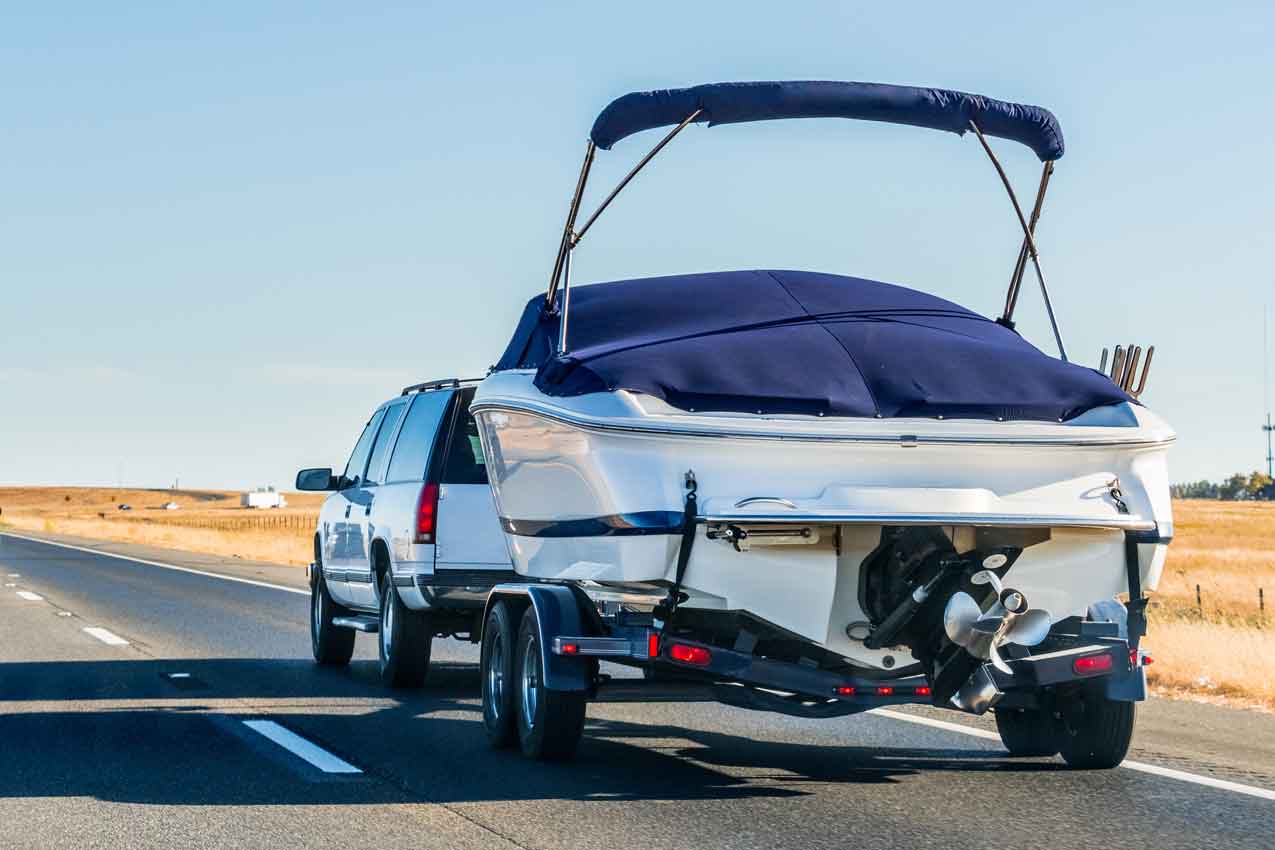
What are common problems with boat trailers?
Before getting into specifics, addressing the common boat trailer problems will give you better insights into our maintenance tips. Understanding common problems is the first step toward preventing disasters. Regular maintenance, inspections, and check-ups can prevent these issues in the future. Some of the most common boat trailer problems include:
- Tire Wear: Tires wear out when you expose your boat trailer to rough terrain or road debris. Hardsh weather, like UV radiation and salt water, can also contribute to tire degradation. Punctures and separation are common tire issues faced by boaters in Belleville.
- Corrosion and Rust: Saltwater is corrosive, and boat trailers have metal components prone to rust accumulation. When its structural integrity gets compromised, it can affect all the inner parts, like hinges and springs, leading to safety issues.
- Electrical Issues: Trailer lights, wires, and other electrical parts become corroded and fail or malfunction. When your lights are dim or don’t work correctly, it poses a safety risk. Electrical issues increase your chances of getting a citation for breaking road regulations.
- Brake System Malfunctions: Brakes can experience wear and tear and fluid leaks. If your trailer brake system malfunctions, the risk of accidents when towing can increase.
- Trailer Misalignment: When your boat trailer is misaligned, it can cause uneven weight distribution and increased friction during towing. This can cause premature wear on tires, bearings, and suspensions. Always check the alignment during basic trailer maintenance to stay stable on the road.
- Degradation of Moving Parts: Components like rollers, winches, and hinges are subjected to constant movement and friction during loading and unloading. Without proper lubrication and periodic inspection, they can wear out prematurely.
- Safety Chain and Hitch Failures: The safety chain and hitch ball secure the trailer to the tow vehicle. When they wear, get corroded, or are damaged, it compromises their ability to tow and withstand heavy loads. The trailer can become detached from the vehicle.
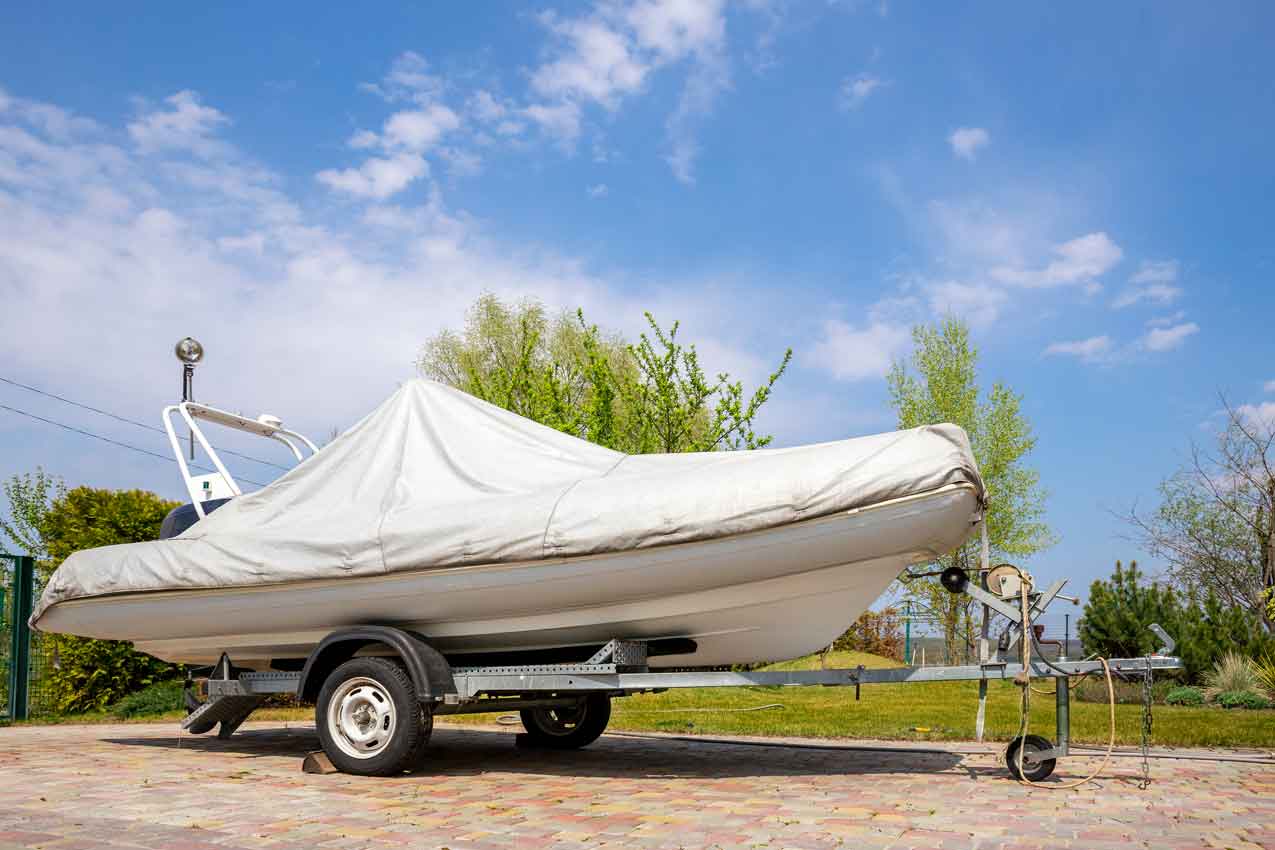
What maintenance needs to be done on a boat trailer?
Now that you know the potential issues your boat trailer can suffer, let’s talk about essential boat trailer maintenance tasks. Maintenance is necessary for your support systems, tires, wheel bearings, and other parts to operate normally. Here are the most crucial tasks to keep your fishing boat trailer in top condition:
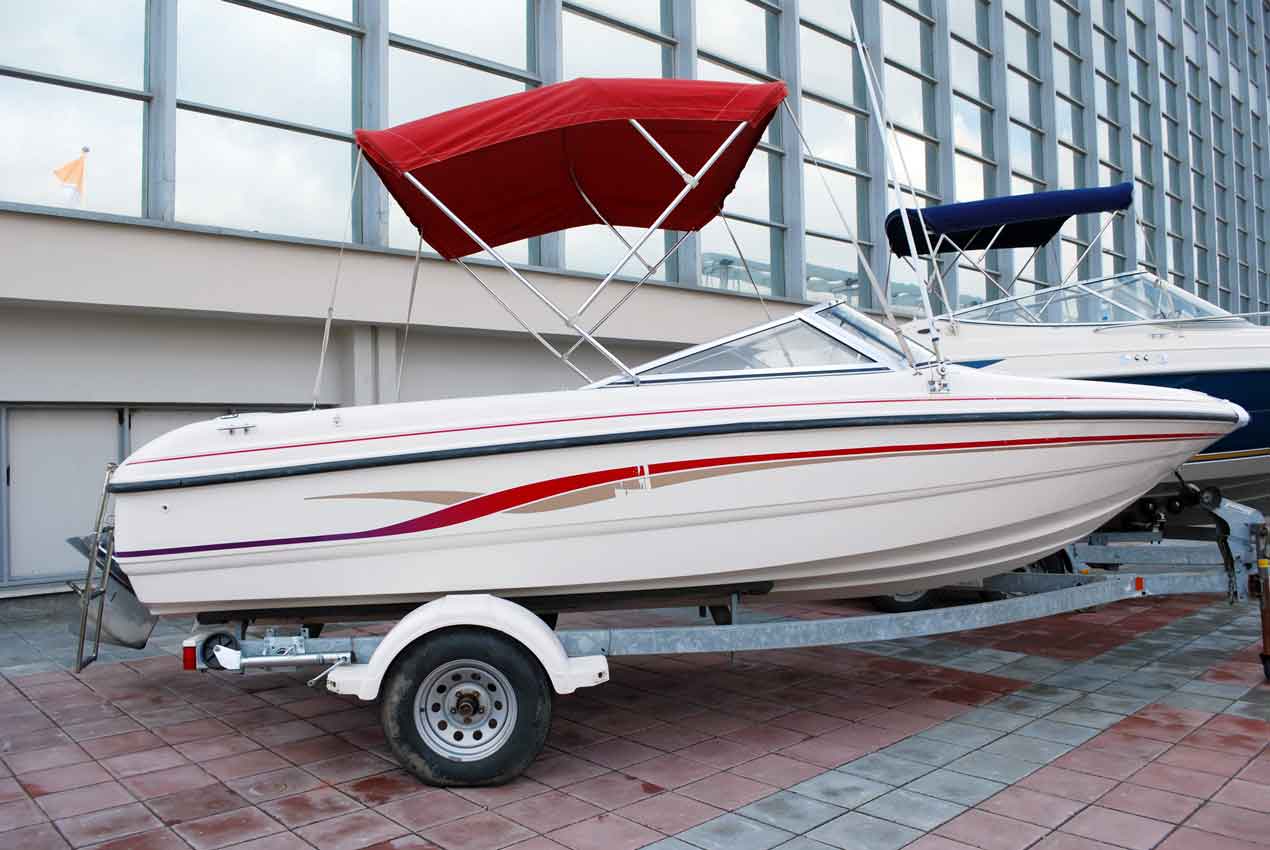
Trailer Tires & Wheel Upkeeping
Maintaining and providing tire care will prolong their lifespan, reduce the risk of unexpected breakdowns, and keep you safe on the road. Here are some maintenance tips:
- Inspect your tires and bearings regularly for signs of damage and irregularities. Tread depth, uneven wear patterns, bulges, cracks, or even nails and debris inserted into them are signs of deterioration.
- Checking for proper tire pressure is crucial for safety and performance. Increased rolling resistance and fuel inefficiency are just some of the consequences of not inflating them properly. A technician can tell you if your trailer has proper tire inflation or needs to be regulated.
- Regularly rotating your tires will promote even wear and extend their lifespan.
- Properly aligning your wheels will maintain stability and help with the handling. If your wheels are misaligned, they can cause uneven wear and affect the trailer’s tracking.
- Wheel bearing inspection can prevent premature failure. They support your trailer’s weight and facilitate tire rotation. You could be in serious trouble if the bearings are loosened or contaminated with water or debris.
- Cleaning your wheels from debris and preventing corrosion can be done with a gentle detergent. It eliminates dirt, grime, and salt residue and prevents further damage. Adding a wax coating can also act as a protective barrier against rust.
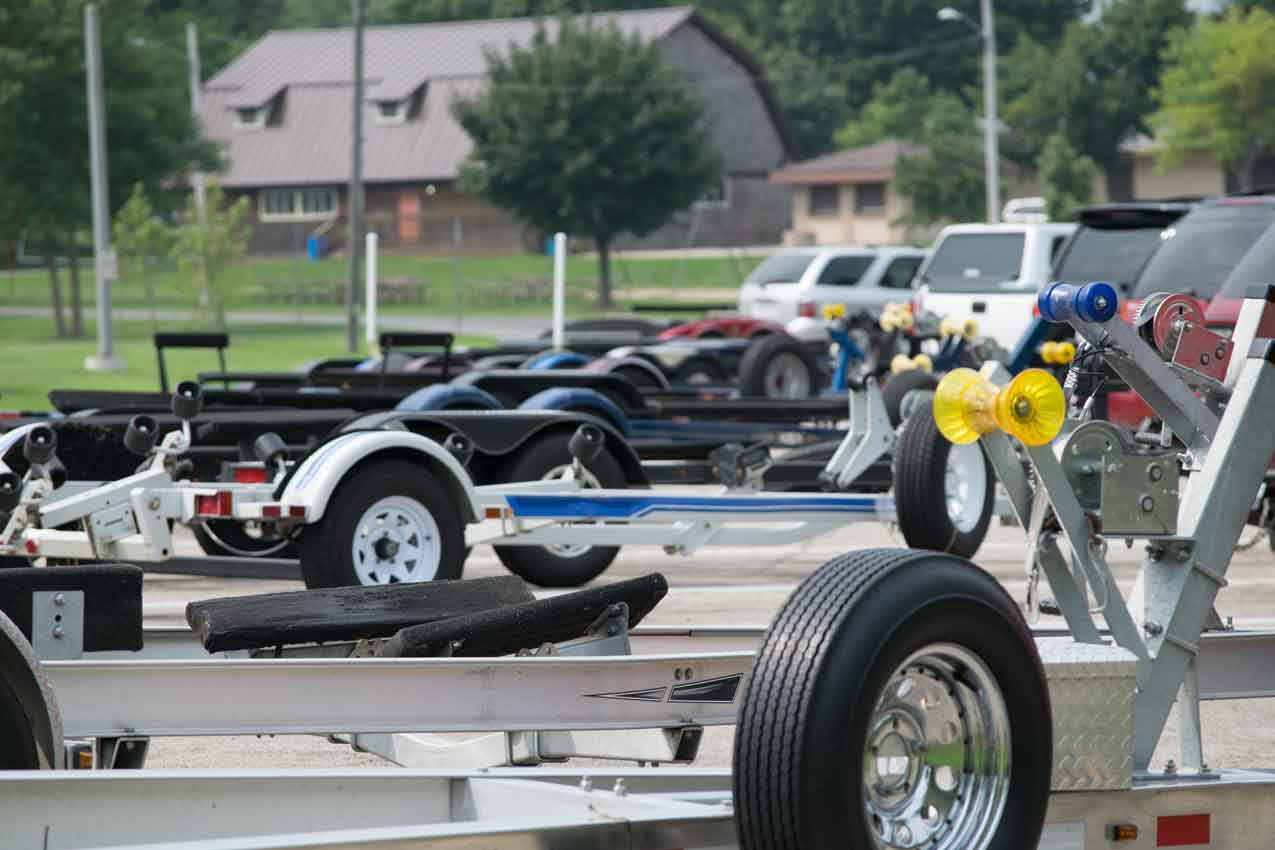
Check the Trailer Lights
Lights are also a crucial aspect of boat trailer maintenance. They’re essential for towing boats safely during low visibility conditions or traveling at night. Here are some practical trailer light maintenance tips:
- Inspect them regularly. Brake lights, turn signals, tail lights, and even the ones on your license plate are essential. It might indicate damage if you see cracks, moisture, or corrosion on the housing lenses.
- Verify that all lights are mounted and aligned properly for maximum visibility. Any boat maintenance professional can tell you if you need to realign or reinstall your boat trailer lights.
- The electrical connections in your lights can also suffer, so check them for corrosion or loose connections. They must always be protected from abrasions and the elements.
- Replace any burnt bulbs for complete visibility and to comply with road regulations. If you don’t know how to replace the bulbs in your trailer lights, a professional can help you with a quick replacement.
- All lenses should be clean to maximize visibility. A mild detergent or a specialized lens cleaner could work to remove dirt, grim, and road debris. Don’t use solvents that could scratch and damage lenses; dry them thoroughly to avoid water spots.
- The lights should be appropriately aligned for uniform illumination. The built-in adjustment screws or mountain brackets can be adjusted to fix the position of each light.
- Seal and waterproof your boat trailer lights to protect them from moisture and corrosion. A silicon-based sealant or waterproofing spray around the edges of the light may come in handy. Apply them regularly, especially after harsh weather exposure.
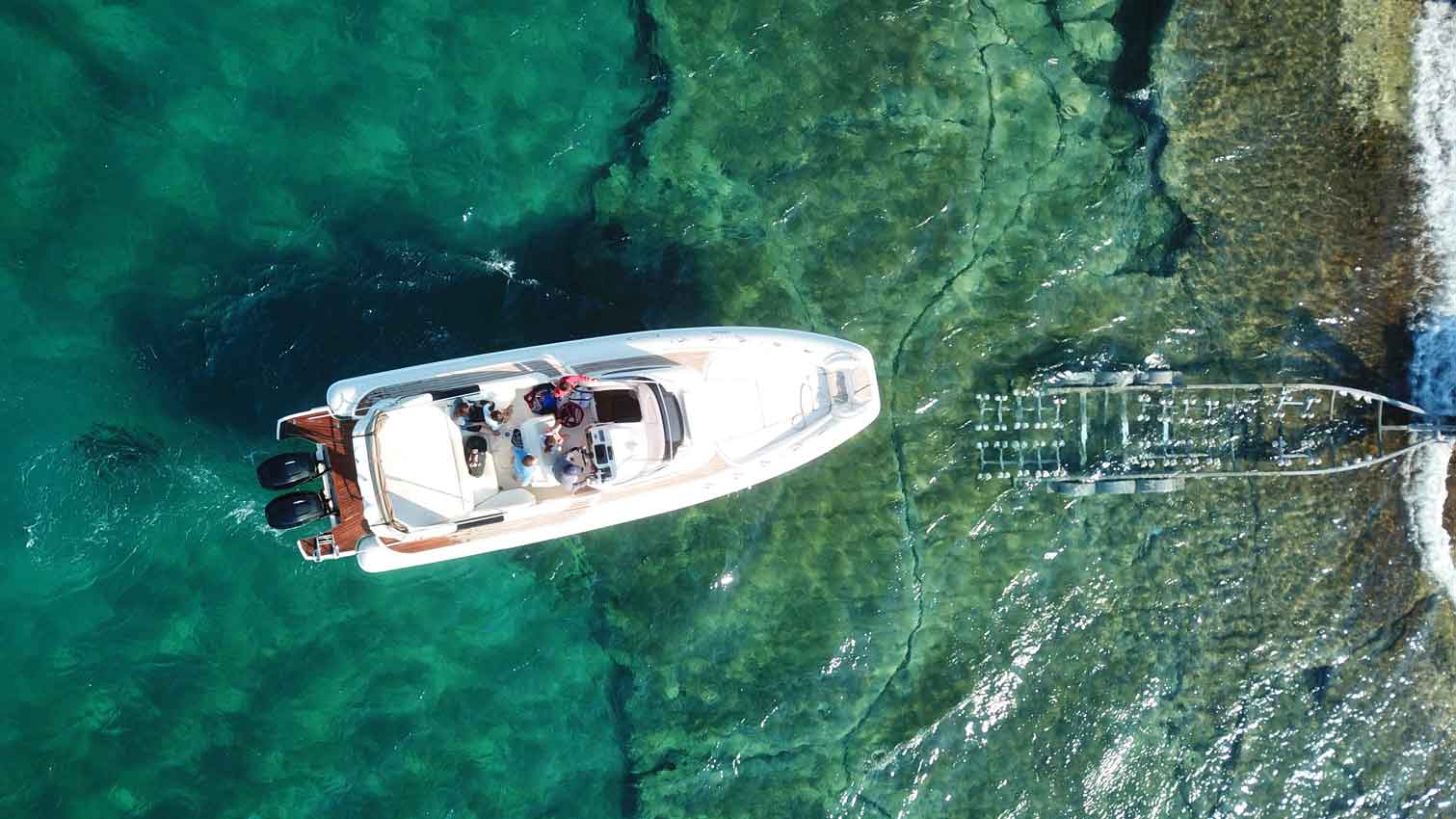
Cleaning & Washing
Cleaning and washing are also part of a regular maintenance routine. Regularly keeping up with the cleanliness of your boat trailer can maintain its appearance, functionality, and resale value for years to come. Here are some cleaning and washing tips:
- Rinse and wash your trailer frame with fresh water to remove dirt, salt residue, and other debris. Areas like wheel wells, undercarriage, and brake components are prone to buildup, so double-check after rinsing.
- You can use a gentle detergent or boat soap on the trailer’s surface. A soft-bristle brush or sponge will scrub away stains and grime. Don’t use harsh cleaners or brushes.
- After cleaning, a coat of automotive wax or corrosion inhibitor on the metal surface can protect your trailer against rust and corrosion. Areas especially prone to rust, like exposed steel components, need special attention.
- Inspecting and lubricating rollers, winches, and hinges with a marine-grade lubricant ensures smooth operation and prevents corrosion.
- After washing, dry the boat trailer thoroughly with a microfiber towel or chamois. Pay special attention to areas where water may collect or pool.
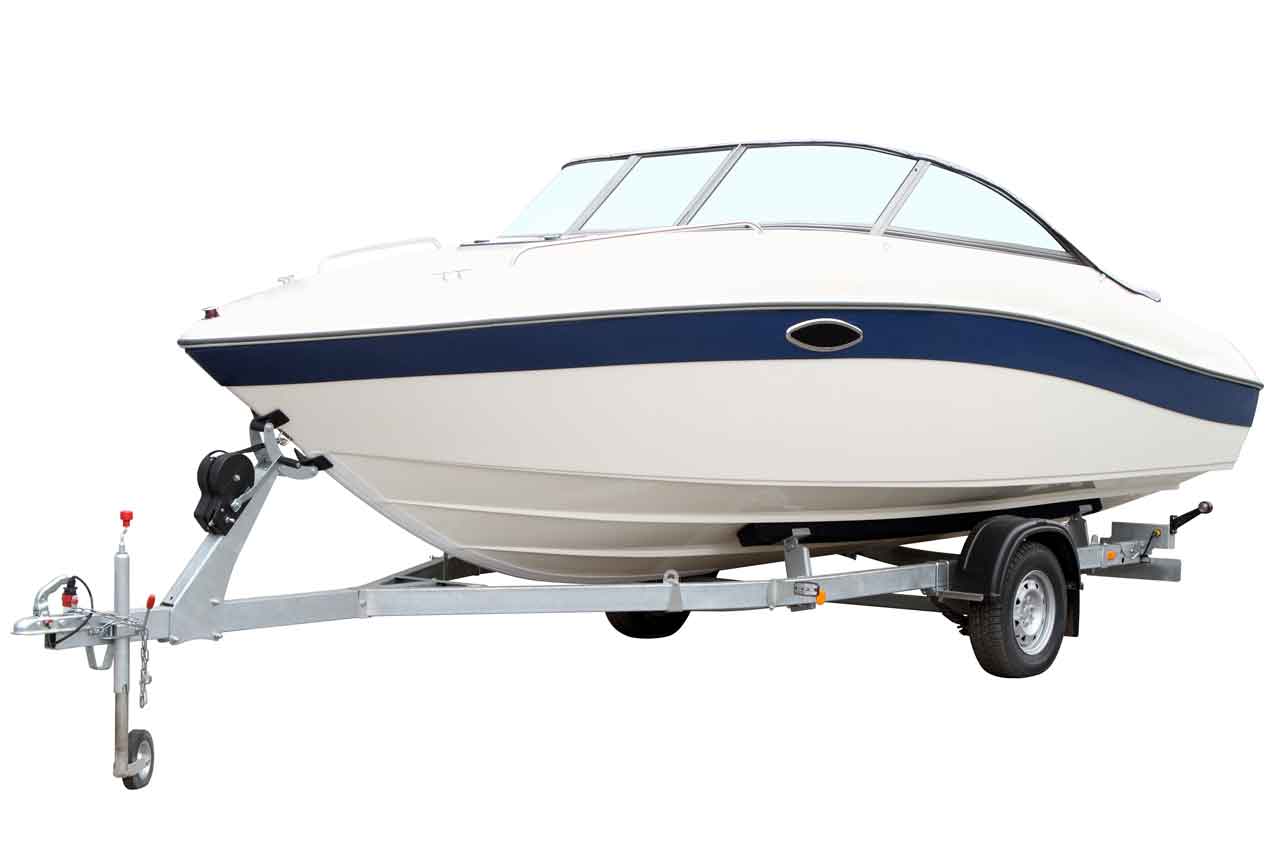
Check the Rollers
Trailer rollers are the small wheels that support the boat when it’s on the trailer. Rollers help your boat on and off the trailer, so ensuring they’re in good condition will ensure a smooth landing and unloading. Inspecting them for wear, damage, and misalignment can prevent future headaches and accidents. Here are some roller maintenance tips:
- Inspect them for alignment. Make sure they are positioned correctly on the trailer frame or bunk boards. If they’re misaligned, they can cause the boat to load unevenly or bind during retrieval.
- Look for cracks, chips, or gouges on the rollers. This could be caused by stress or impact damage. You can also check for signs of corrosion or rust.
- Test them by rotating them with your hands. If they spin without binding or resistance, they’re properly lubricated. Resistance or uneven movement might be a lubrication issue, which can be fixed by applying a marine-grade lubricant. Standard grease or oil might not withstand exposure to water.
- If the rollers have become worn or there’s significant damage and deterioration, replacing them is the best way to protect your boat. Make sure you choose replacement rollers that are compatible with your boat trailer.
- Inspect the mounting hardware; brackets, bolts, and fasteners should be corrosion-free. If they are damaged, full of rust, or corroded, they need to be replaced to prevent failure during use.
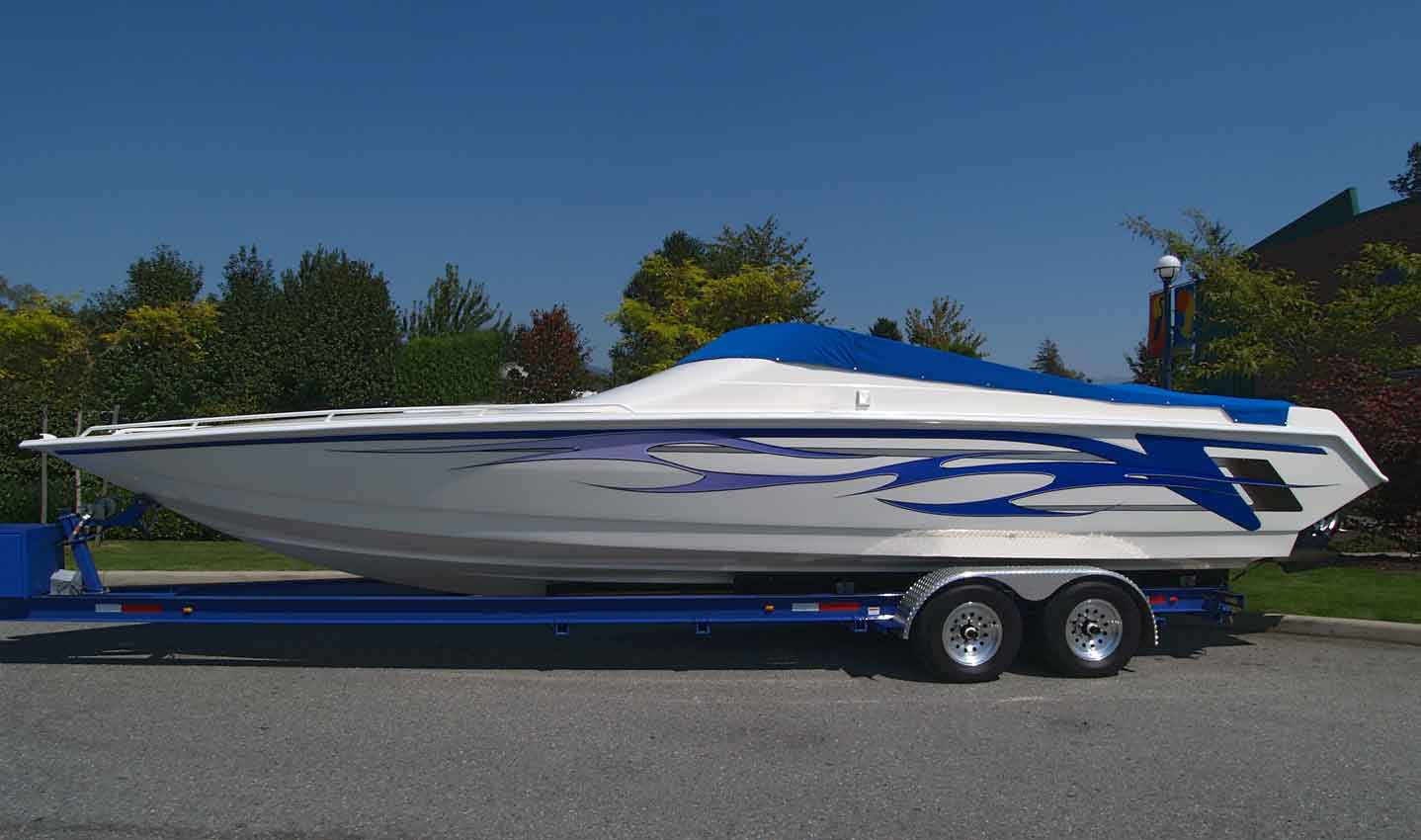
Double-Check the Brakes
With any moving vehicle, brakes are paramount. You must ensure safe towing, especially when navigating inclines and heavy traffic. Worn brake pads, leaking hydraulic lines, or corrosion are common issues. It’s essential to identify them before they compromise braking efficiency. Here are some brake maintenance tips for your boat trailer to keep you safe on the road:
- Inspect all your braking components like brake pads, rotors, drums, calipers, and hydraulic lines. They can be worn, damaged, or have corrosion. If there are uneven wear patterns, you may have a misalignment issue. This is usually done by mechanics and professionals who can inspect brake parts without damaging them and know what to look for.
- Testing your brakes to ensure a smooth release and engagement can give you insights into the state of your trailer brakes. If you hear unusual noises, vibrations, or pulling, they might need attention from a boating trailer mechanic.
- Adjusting the brake mechanisms might be necessary if you encounter any of these issues. A technician will inspect brake systems and adjust brake shoes, calipers, or hydraulic pressure to guarantee optimal performance. They will replace damaged or worn brake pads, rotors, drums, and other components.
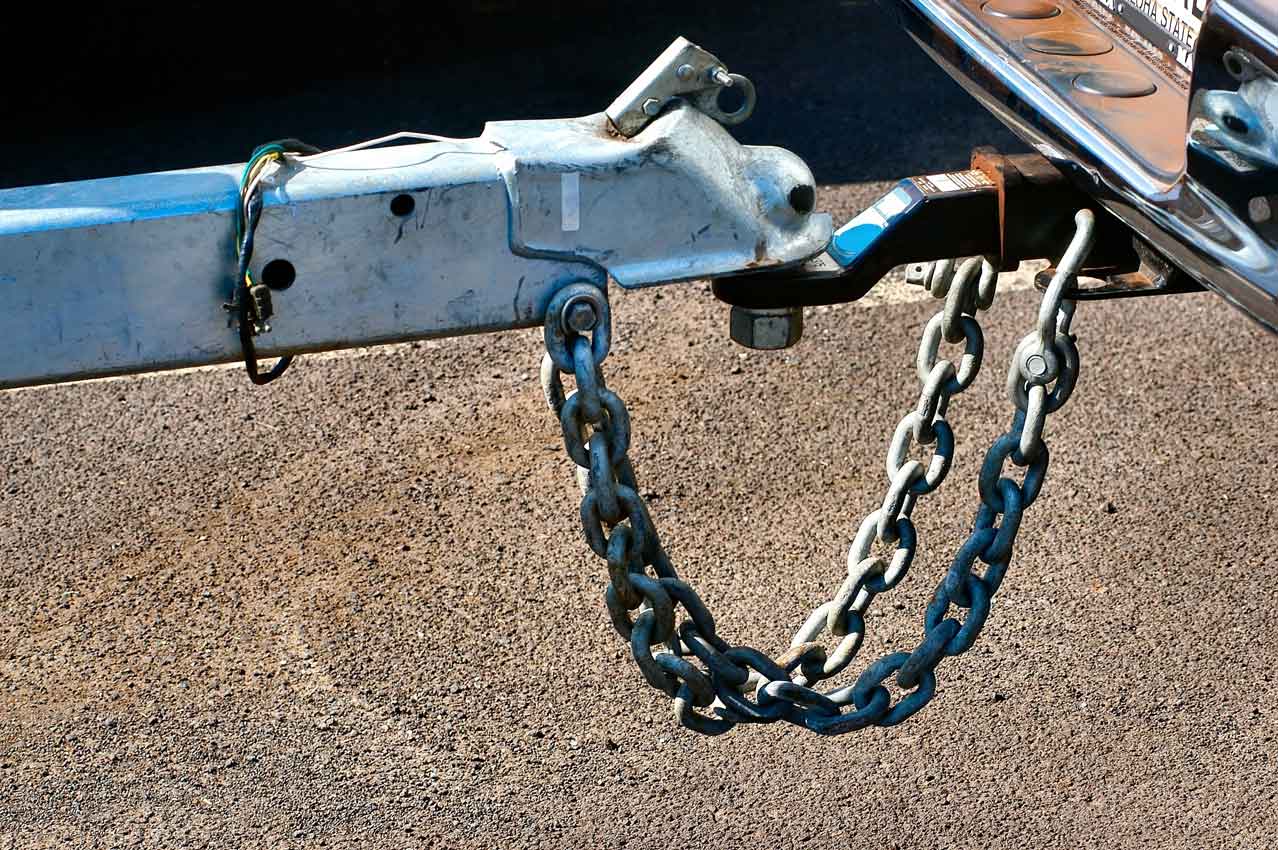
Hitch Ball & Safety Chains
The boat trailer hitch ball is the attachment point to your tailor coupler. Safety chains keep the trailer connected to the tow vehicle. They are crucial in preventing detachment while on the road. Here are some hitch ball and safety chain maintenance tips:
- Inspect the hitch ball for wear, damage, or corrosion. Check for cracks, dents, and deformities on the ball surface and ensure it’s appropriately mounted to the hitch receiver. The locking mechanism should be properly functioning.
- Test the hitch connection by applying downward pressure to ensure it engages securely.
- Lubricate the hitch ball and coupler mechanism regularly to ensure smooth operation and prevent corrosion or binding. A high-quality lubricant is recommended. It must be applied to the ball surface and inside the coupler mechanism.
- The safety chains should have proper tension and clearance between your trailer and the tow vehicle. They should cross under the trailer tongue and securely attach to the truck receiver. They shouldn’t drag on the ground or become tangled.
- Contacting a boat maintenance professional is smart if you notice any signs of wear, damage, or corrosion during the inspection.
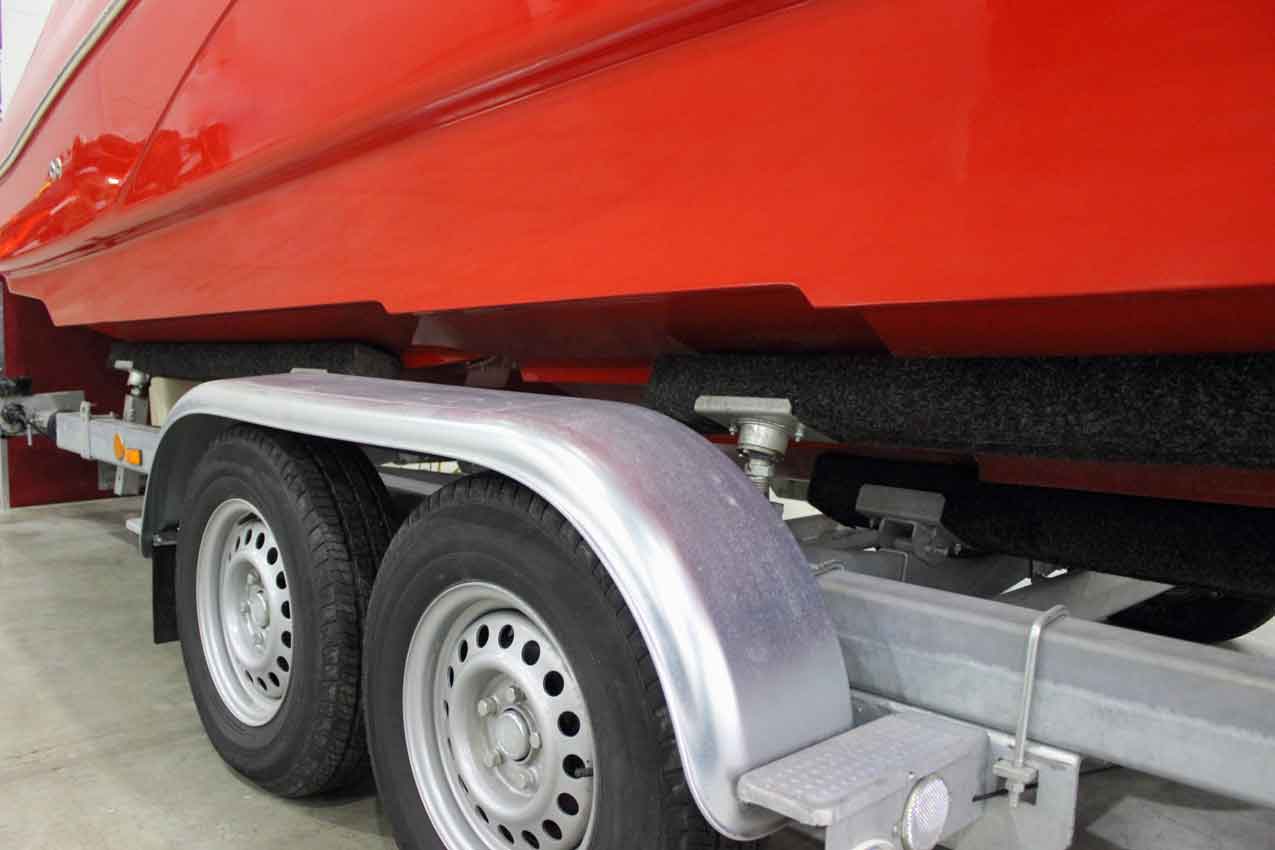
Tongue Jack & Coupler
The tongue jack and coupler connect your trailer and tow vehicle. They’re crucial for hitching safety. If they’re not securely attached, the trailer weight can work against it and compromise your safety. Here are some coupler and tongue jack maintenance tips:
- Inspect the tongue jack for signs of wear, damage, or corrosion. Check the jack’s crank mechanism, handle, and mounting hardware for any signs of rust, corrosion, or mechanical issues.
- Inspect the coupler for any signs of wear, damage, or misalignment.
- Lubricate the tongue jack and coupler mechanism regularly to ensure smooth operation and prevent corrosion or binding. A high-quality lubricant or grease is recommended for trailer hitch components.
- Adjust the height of the tongue jack to ensure proper clearance between the trailer tongue and the tow vehicle.
- If you notice any signs of wear, damage, or mechanical issues during the inspection, promptly replace worn or damaged tongue jack and coupler components. A boating mechanic can help you with any repairs or replacements.
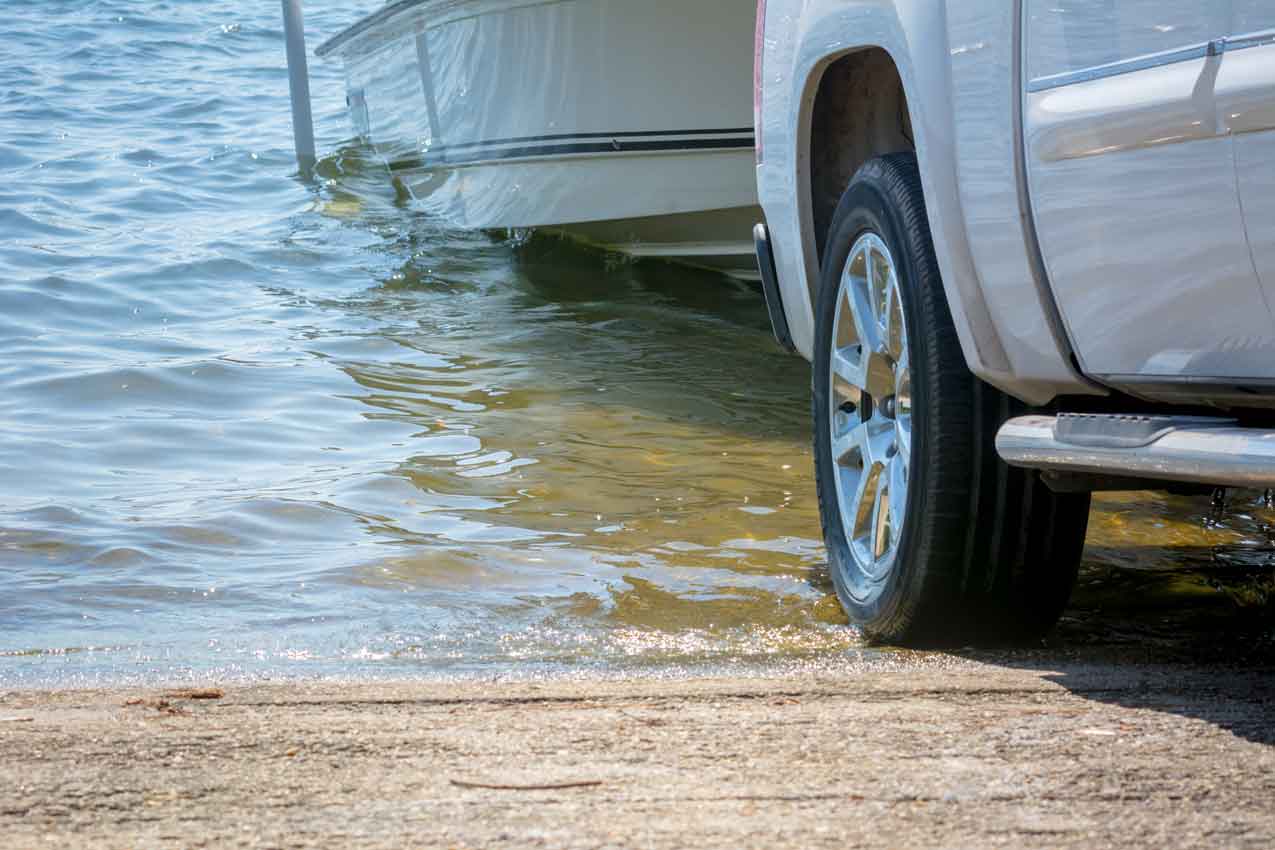
Other Parts to Revise
Other crucial parts that must be looked at during the maintenance process:
- Winch and Strap
- Boat Trailer Bearings and Axles
- Springs
- Suspension Components
- Fenders
- Trailer Bunk Boards or Rollers (for supporting the boat)
- Wiring Harness and Connectors
- Frame Welds and Joints
- Trailer Winch Stand
- Tie-Down Straps or Chains
- Bearing Buddies or Bearing Protectors
- Spare Tire and Carrier
- License Plate Bracket
- Trailer Jack (if not integrated into the tongue jack)
- Reflectors and Marker Lights
Conclusion
To summarise, it is vital to maintain your boat trailer for safety and reliability while towing. Each part is essential for your and your vessel’s safety on the road, including tires, lights, hitch, and safety chains. By adhering to the maintenance advice in this guide and routinely checking and maintaining your trailer, you can have confidence that it’s prepared for your next trip on the water.
Don’t delay until there’s an issue – take action now to ensure your boat trailer is in excellent condition and ready for all your sailing adventures. Have a safe journey, and enjoy smooth sailing ahead!


